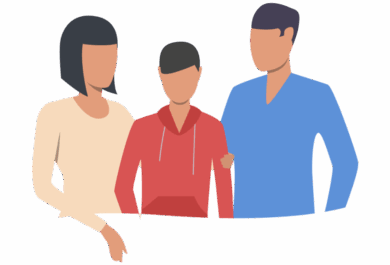Announcements

Students in the Residential Treatment program are assigned housing that best supports their individual needs.
The Donnelly Family Student Residences houses 88 students in a state-of the-art complex comprised of three two-story buildings, each containing 11 living units. Each unit consists of eight private bedrooms, dining space, TV and recreation area, two private full bathrooms, and a supervisor’s office that is staffed 24 hours a day.
All residential units are gender-inclusive and comprised according to age/peer group and social, emotional and behavioral needs. Each floor includes offices for a Residential Administrator and the Social Workers for those individual residents. All units are equipped to support the wide range of emotional, behavioral and developmental disorders our students face, including Autism Spectrum Disorder, and provide a well-structured, cohesive, and supportive living environment.
Each living unit employs direct care staff members, including Unit Supervisor, Assistant Unit Supervisor, Social Worker, and Youth Counselors – who provide specialized services that include therapeutic recreation, group work, independent living skills, mentoring and around-the-clock supervision.
The Residential Program supports the children in our care with opportunities to gain knowledge and life experience to put them on a path to independence, and effectively transition to adult life. With an emphasis on life skills and soft skills, the Independent & Coaching Units provide a safe and stable living environment that allows each young person to demonstrate personal responsibility and accountability.
David Hall is one of the independent units that focuses on life skills instruction and vocational training. Residents are taught to be more independent and self-reliant as they prepare for the future.
Residential Services administration is overseen by the Vice President of Residential Services and supervised by a cohesive team of Assistant Directors, Residential Administrators, and a Therapeutic Support Supervisor. This team offers guidance, oversight, and support for all organizational processes and staff development.
Social activities, group sessions, and signage within living units support practice of safe and positive behaviors in the dorm, on campus, and at home.
Each residential building is equipped with a laundry facility, as well as multi-purpose rooms for family visits, treatment-related meetings, and small group activities.

Crowned the best for falconry in medieval times, gyrfalcons were once reserved for kings. As the largest falcon in the world, with exquisite plumage ranging from bright white to deep charcoal, gyrs are revered for their powerful skill of flight. Their long wings make hunting waterfowl from 3,000-feet-high a feasible and fantastical feat. This falcon was flown in the sport of falconry for several years.